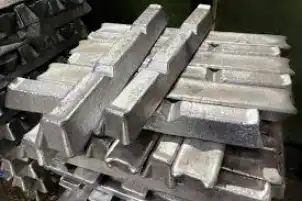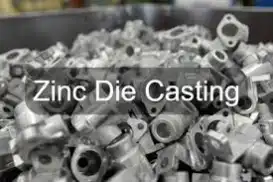
Knowledge
Die Casting Materials
Although it can cast both ferrous and nonferrous materials, not all materials are suitable for die casting because the process entails heating the material to its melting point and then pressing it into reusable molds. As a result, the materials such as magnesium, zinc, aluminium, iron, copper, silicon, tin, and lead are more often than not utilized for die cast parts.
Welcome to reach out us to communicate about your requirements. Please feel free to call us at 029 81161513 or email us at info@castings-forging.com
Aluminium
Because of the low-cost nature of aluminium, it is widely used in the die casting process. Die casting aluminium is lightweight and environmentally friendly, and it has good dimensional stability, allowing producers to produce components with thin walls and intricate geometries. Aluminium components have several uses in the aerospace, automotive, and electronics industries due to their corrosion resistance and thermal/electrical conductivity. Aluminium is alloyed with silicon and copper to avoid shrinking or shattering at high temperatures.

Zinc
Zinc die casting is a versatile production method that is ideal for items that require increased strength and ductility, high accuracy, tight tolerance, and outstanding thermal characteristics. The most common examples of zinc die casting items are gears and connectors. Zinc may need to be blended with aluminium to improve the final product’s quality. Because of this metal’s low melting point, zinc die-casting is ideal for hot chamber die casting. Zinc die casting components have several uses in the consumer electronics and automotive sectors.

Copper
Almost all of the items made from copper are durable. Furthermore, copper has high corrosion resistance. As a result, it is widely used to produce components for the plumbing and electrical industries.
Magnesium
Magnesium is an ideal metal for die casting when thin-structured walls and high accuracy are required. It has a high strength-to-weight ratio and is lightweight hence used widely in the aerospace industry.
Zinc alloys
Zinc alloys, such as ZA alloys and Zamak alloys, continue to be extremely easy to die-cast, and their reaction is also ideal for this process due to increased strength and cast ability. Zinc alloys are widely used as a decorative and practical alternative to iron and brass.
Bronze and brass alloys
Bronze and brass alloys may be die-cast almost as rapidly as zinc alloys. Bronze and brass alloys enable the producer to make durable components with better machine ability, particularly in the presence of lead.
Brass alloys also offer good corrosion resistance, a low melting temperature, a low coefficient of friction, relatively high strength due to the inclusion of aluminium, and recycle ability, in addition to a completely accurate internal examination.
Lead alloys
Lead alloys are used to manufacture fire-safety equipment, ornamental metal items, and bearings. Without a doubt, it is due to their capacity to withstand corrosion. They are not recommended for use in goods that come into contact with food.



